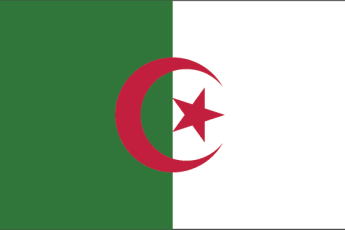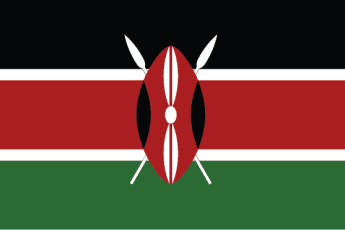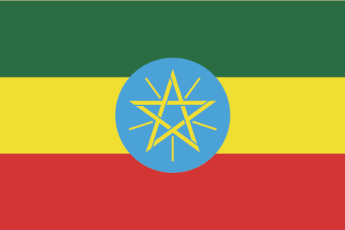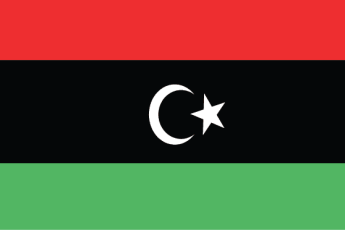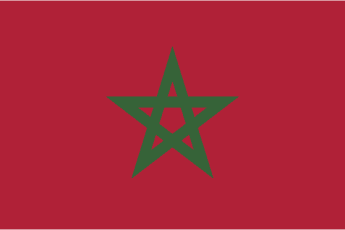Why Choose Mauritanian Brides?
If you’re a Westerner thinking about getting married in a beautiful African country, you might want to consider a Mauritanian bride. This beautiful culture and its traditions can be very exotic, and they’re sure to be unique in every way. Learn about Leblouh, Force-feeding, and the “Divorce Concerts”.
Mauritania’s customs and traditions
Mauritania has a number of unique traditions when it comes to weddings. These ceremonies are highly attended by family members and extended friends, and include many battles. The groom is often the one who has to fight the hardest to get the bride. The groom must also accompany the bride to the marital home. It is important to remember that weddings in Mauritania are fraught with violence and injuries.
The first of Mauritania’s strange traditions for brides is the “leblouh” or “divorce concert.” This ritual takes place in the traditional wedding ring, which is made of sand and beads. The bride’s family and friends also pay the groom a fee to decorate the bride, called the Al Aadaa. However, this custom may not be practiced in all regions.
In Mauritania, the bride’s mother receives a high degree of importance. She is the focus of attention of men, and this raises the desire to marry a divorced woman. In addition to the ceremony, the bride’s mother also takes part in the celebration by joining the bride’s friends and family at a live concert vigil. The ceremony lasts for three days and is followed by a traditional meal of fried fish.
Mauritania’s wedding customs include the “charivari”, a French tradition where young men and women bang pots and pans, serving drinks and snacks to the newlyweds. In addition to banging on pots and pans, young women and men are expected to kiss the bride as they leave the room. Similarly, men and women kiss the bride on the cheek while she is excused to the bathroom.
Leblouh
Leblouh, or forced marriage of two young men, is a practice that is still common in Mauritania. Many young women have fought against it, but tradition still trumps common decency. Although the country has signed several international treaties to protect children, leblouh remains common among rural girls and is still supported by some familial figures. It is a practice in which young women are subjected to physical and sexual violence until they vomit.
The practice of leblouh is rooted in the Tuareg culture and involves saddling young girls with enormous amounts of food for an early marriage. The aim is to get a curvaceous figure, which symbolizes affluence. Unfortunately, this practice is actually preparing young girls for early marriage by causing them to become obese. The weight gained from the excessive eating stunts prematurely matures the child bride’s appearance, and she looks thirty instead of fifteen.
Fortunately, there are now women-led NGOs fighting the practice of leblouh. These organizations are working hard to eliminate this practice and promote female empowerment. Fatma Sidi Mohamed founded Espoire, a women-led organization that seeks to provide more opportunities for women to earn a living. She believes that this will help prevent the girls from being pulled out of school. The organization also offers health classes and microcredits to women in the Nouakchott area.
Force-feeding
In Mauritania, young girls are force-fed by older women to make them appear fat. This practice, known as ‘Leblouh,’ is rooted in the 11th century idea that being overweight meant wealth. The practice, which is common among young girls, has become so widespread that it has made a dramatic comeback after the country was taken over by a military junta in 2008.
In Mauritania, nearly 37% of girls marry before reaching the age of 18, often resulting in child marriages. Many of these young girls marry older men. One victim of child marriage, who was four when she began the process, was married at 12 and was pregnant at 13. This practice jeopardizes the health of the female population, causing problems such as heart disease, diabetes and hypertension.
In a report published by Equality Now, the organization highlighted the problem of forced-feeding among Mauritanian brides. The practice is used to increase girls’ appetites and expand their stomachs for marriage. But it is often viewed as a shameful practice. A number of girls have fought against the practice. In this country, a woman’s body weight is viewed as an important factor in her ability to marry, and her weight is used to determine her worth.
The revival of the practice in Mauritania is disappointing for campaigners and advocates. Although the practice has declined, it is still widespread among rural girls in the country. This is largely due to lack of awareness about the practice. Campaigners want to raise awareness of this ancient practice. The practice is also a form of slavery. Despite the increasing number of protesters, however, Mauritania is still home to many Leblouh practices.
Mauritania’s “Divorce Concerts”
If you want to witness a beautiful wedding ceremony, then you will probably want to see a Mauritania wedding. Mauritanian weddings are considered to be some of the most beautiful and traditional in the world. However, they’re not without their peculiar customs and traditions. If you’re planning a wedding in Mauritanian, you should know what to expect. This is a very different culture than most other parts of the world.
In Mauritanian culture, women and men are treated differently. Women who have divorced their husbands are often viewed with the pathos of poets. Poems are an important part of the Mauritanian way of life. They combine powerful verses to express the deep feelings of their hearts. A Mauritanian wedding is a special occasion, and it’s a chance for divorced women to celebrate the end of a marriage.
Mauritanian culture is based on tribes and regions. This isolation makes intermarriage very difficult, which is why divorced women often marry their cousins or family members. Mauritania’s divorce culture also gives women few options for their future. Divorce in Mauritania is often considered a sign of independence and availability, and some women proudly wear the names of their former husbands to signal that they are not a burden on their husbands.
Bedouin customs
When choosing a Mauritanian bride, it is important to understand the culture of the people you’re considering. Bedouins are traditionally organized into “nations.” These are tribal groups with common ancestors. Each family is lead by a leader selected through a universal selection process. These societies have evolved to survive in an environment that is changing rapidly and in which national governments have not always been supportive.
Bedouin women traditionally grind grain and work wool into yarn using hand spindles. They also knit camel udder covers for newborn camels. These are a sign of friendship and are given as gifts during wedding ceremonies. Bedouin women also dress up in traditional attire, which includes a long dress, jewelry, and sandals. They are also expected to be comfortable in their wedding outfits and choose their jewelry and accessories carefully.
In addition to the dress code, Bedouin women enjoy beauty treatments. They also enjoy buying new clothes. In addition to their beautiful dresses, Bedouin brides also get a full day of pampering. After getting ready to marry, the bride is escorted by her family and groom’s relatives. The bride and groom share a meal together in the bride’s family’s home, where they share the feast that includes goat, rice, and other foods. The featured dish is typically a stuffed camel.
Circumcision
There are many reasons to avoid female circumcision. This practice is not only considered harmful, but it also decreases a woman’s sexual instinct. Women who are not circumcised are more likely to become nymphomaniacs, a condition that may cause her husband to die. In addition, female circumcision prevents the swelling of the clitoris, a condition that leads women to masturbation and homosexual relations.
Female circumcision is a traditional cultural practice, and in some countries, the tradition is not a big deal. In the case of Mauritanian brides, the procedure involves nicking the girl’s clitoris with a razor. This procedure may cause minor bleeding, but does not cause permanent mutilation. For this reason, it is a controversial practice. In the modern day, however, the practice is becoming increasingly common.
In some countries, female circumcision is done in order to guarantee virginity. This practice is not as prevalent in Mauritanian society as it is in other Muslim countries, including the Islamic Republic. However, it is widely practiced in 28 African countries. The number of women being circumcised is estimated at 75 million. In the west, criticism of the practice is often patronizing. Women in Africa who wish to avoid this practice should not undergo circumcision.
In Africa, female circumcision is a cultural practice that symbolizes male dominance. Women in this culture are viewed as property by their husbands. In addition to being a symbol of male dominance, female circumcision also has religious significance. In many societies, it curbs the aggressive behavior of women and guarantees male property rights. In some countries, it is legal. Some African nations have laws prohibiting female circumcision.
Dating With Mauritanian Girls
If you’ve ever thought about meeting a Mauritanian girl, you might be wondering how to go about it. This article explores the ancient “Leblouh” tradition and the fact that Mauritania’s girls are often fat and sexy. It also discusses some tips for meeting a Mauritania lady, including security concerns. Then, learn how to make the most of your meeting!
Mauritania’s ancient ” Leblouh ” tradition
You must be aware of Mauritania’s ancient ” Leblauh” tradition when dating with Mauritanian girls. This practice involves force-feeding young girls to make them more appealing to prospective suitors. This practice is illegal and has serious health consequences, but still persists in Mauritania. To avoid being victimized by this practice, you must avoid dating a Mauritanian girl.
Mauritania’s Leblouh tradition is extremely strong and deeply rooted in the culture. It is a tradition that dates back to pre-colonial times. The white Moor Arabs of the region were nomadic farmers, and most women were expected to marry early in life. They believed that a man who had a large, round body was rich, and therefore, more desirable. They also believed that stretch marks and scars were valuable and beautiful, and therefore were considered precious.
The practice of “leblouh” is so strong that girls are forced to eat enormous quantities of food and drink milk before they can marry. The practice has been criticized by feminist activists, but is still prevalent. In Kiffa, eastern Mauritania, Mint Ahmed is a mother of one son. She was seriously overweight during pregnancy and gave birth by cesarean section. After she gave birth, her mother refused to accept her weight loss, and her mother imposed the practice.
Mauritania’s preference for fatter women
Mauritania is a country that has long preferred fatter women for marriage. The culture of fattening women dates back to the Moors, nomadic Muslims who make up two-thirds of the population. In ancient times, fat wives were considered a sign of prosperity and a man’s good luck. The practice is widespread throughout the Arab world, and even in Mauritania, where men are generally slim, fat women are prized.
The government of Mauritania has sought to change this trend. It has promoted obesity among women as a public health problem. In 2003, the country introduced a national obesity awareness campaign that encouraged young women to maintain a healthy body weight and warned them of the dangers of obesity. However, the government has not done enough to curb the trend. Activists and organizations are urging the government to intervene. Despite the government’s repeated failures, the practice continues.
Tips for meeting a Mauritania lady
If you’re planning to date a Mauritania lady, you need to be aware of the cultural norms and etiquette. These women are hospitable, but they are not demanding. Because of their cultural and religious beliefs, they dress modestly. Avoid wearing shorts or loose clothes. Be polite to your Mauritania lady. She will respect your efforts to date her and will engage you in conversation.
Firstly, it is important to know that Mauritania women are largely Islamic. Therefore, they require the consent of their parents before getting married. If you see a woman who is open to introducing you to her parents, you may have found your perfect match. Similarly, a woman who is willing to support your career and dreams is a good choice. So, when you meet a Mauritania lady, don’t forget to ask her parents for their consent.
Security concerns when meeting a Mauritania lady
If you’re interested in meeting a Mauritania lady, there are several concerns you should consider. The country is considered one of the poorest in the world, and the Human Development Index was only 0.453 in 2011. Most of the population lives in rural areas, and health care access for many communities is difficult. The largest ethnic group is Arabs. The country’s average life expectancy is 56 years, and the infant mortality rate is over 500 per thousand live births.
Is Leblouh Common in Mauritanian Women for Marriage?
If you are thinking about marrying a Mauritanian woman, you might be wondering if Leblouh is common. In this article, you’ll learn about a traditional wedding in the country, what women wear, and the impact of the “secret” marriage on girls’ health. But before you make that decision, it’s important to understand what it all means. Listed below are some facts you might not know about Mauritanian women.
Mauritania’s Leblouh tradition
Mauritania’s Lebloub tradition for marriage is an example of a cultural practice that is rooted in a high rate of poverty. The practice of marrying a large-bodied woman is a requirement for marriage in Mauritania. Women are viewed as beautiful if their bodies are full and rich. Women who are full and heavy are considered to be wealthy and well-fed, as they don’t have to work hard to feed themselves. They are also thought to elevate their man’s status in society. Slim-body women, on the other hand, are considered to be less attractive and a disgrace to their families.
Despite the dangers of child marriages, nearly 37 percent of Mauritanian girls get married before they are 18 years old. In fact, the practice is often done when women are young, with young girls being married off at a young age to an older man. In one recent case, a four-year-old girl got married at the age of twelve and was pregnant at thirteen. This practice is harmful to the physical and mental health of the female population of Mauritania.
Mauritania’s “secret” marriages
In Mauritania, “secret” marriages are a growing problem. Rich men attempt to circumvent polygamy restrictions by marrying second wives, and fail to register their relationships. However, the government and civil society have largely failed to raise awareness about the problem. Other factors are involved, including social traditions that encourage early marriages. In the end, the secret marriages result in social unrest and a breakdown of trust.
The process of a “secret” marriage in Mauritania involves two parties agreeing to keep their relationship secret. The groom vows to support the bride’s parents financially. Typically, peasants and recent immigrants are the targets, while girls from nomadic tribes are favored. Grooms are civil servants or tradesmen who promise to support their bride’s parents financially. The “secret” marriages are not legally recorded and are strictly prohibited. The ceremony is overseen by a preacher, who ensures the secrecy of the union. The bride’s guardian, usually her father, is required to witness the wedding.
Mauritania’s traditional wedding attire
The traditional wedding attire worn by Mauritanian women is different from that of brides in other countries. Brides wear black while the groom wears white. Both bride and groom wear wedding attire that is believed to have been handed down from Arab people who first brought Islam to the area. Generally, a wedding is arranged by families of the same tribe. A wedding in Mauritania is a big deal and is usually very grand, with lots of music, food, and dance.
The Soussia wedding outfit is worn by women in the Berber and Amazigh regions of the country. Each tribe wears a slightly different variation of the same dress, but all are adorned with opulent jewellery. A tawnza crown and layers of pearl and gold bracelets are worn by the bride, while Amazigh women wear takhersin earrings. Lastly, the bride slips into leather-stitch and patterned shoes.
The impact of Leblouh on girls’ health
The practice of Leblouh, also known as gavage, involves subjecting young girls to grueling, months-long regimens of grueling food and liquid. These regimens, performed on girls as young as five years old, are meant to produce a curvaceous figure that denotes affluence. Despite their harmful effects on health, however, Leblouh is a cultural ritual that prepares young girls for an early marriage. Sadly, this method also prematurely matures girls’ bodies, forcing them to look thirty years old instead of fifteen.
In the past, Leblouh has been on the decline in recent decades, but recently has risen again in some parts of the country. Some speculate that the rise of Leblouh is linked to the political climate of the country. The 2008 coup in the country ushered in a decline in the country’s overall development for women. Many female diplomats were forced to perform traditional roles at home.
Changes to the tradition after the coup
The tradition of marrying a Mauritanian woman is not new. It’s been practiced in most communities for thousands of years. Mauritanian women are expected to work for their husbands, have children and do household chores. Their ultimate goal is to satisfy their husbands. This means they must be soft and supple, with silvery stretch marks on their arms and thighs. Some locals believe that being large means a woman has a big space in a man’s heart.
The practice of leblouh has experienced a renaissance in recent years. Some people believe it is connected to the country’s political climate. The 2008 coup catalyzed this comeback, but it was also the beginning of a decline in women’s development in the country. After the coup, female diplomats were fired and forced to take traditional roles at home.
Wedding Traditions in Mauritania
When it comes to Mauritania, wedding traditions can be fascinating. A Mauritanian bride dresses in a way that reflects the culture of her country. The ceremony and reception are also culturally rich, resulting in a memorable occasion. Read on to learn more about wedding traditions in Mauritania. You may also want to know about the legality of female circumcision. After reading this article, you should feel more comfortable planning your wedding in the country.
Mauritania
The wedding customs of Mauritania are quite unique compared to other countries. In Mauritania, the bride is hidden away on the night of the wedding. She is kidnapped by friends and the groom must try to find her. The bride is also forced to wear black for the first days of the marriage. There are many other customs related to marriage in Mauritania. Read on to discover more about them.
Before the wedding, the bride needs to fatten up, according to Mauritanian tradition. She must consume large amounts of fat in order to look good for her new husband. She must also eat a lot of rice and bread. The groom’s family must also take part in the festivities. This is a cultural custom that cannot be avoided. This tradition can be traced back to the time of the Mauritania’s founding.
Mauritania wedding customs
The traditional dress of a Mauritanian bride is made up of many different elements. The bride will wear traditional jewelry and accessories. The bride will also wear traditional make up. In the past, women only wore eyeliner, but now all kinds of makeup are worn. While the traditional dress may look simple, it is actually quite elaborate. The bride will wear a variety of accessories to the wedding, including a white flower.
Marriage is very controversial in Mauritanian culture. Some tribes are not allowed to marry each other because of historical rules. This is largely due to the fact that Mauritanian society is very stratified and gives a high importance to tribes. For this reason, a slave can’t marry a warrior or a scholar. These factors complicate the subject of marriage, which makes it difficult for some women to participate.
Mauritania’s wedding dress
The Mauritania is a Sahel country, situated between North Africa and Sub-Saharan Africa. This land is populated by Berber and arabe tribes and is known for its stunning colors. This beautiful land has a long tradition of celebrating marriages, though modernization has brought changes to these traditions. But you can still enjoy the unique beauty of a Mauritanian wedding. If you are considering getting married in this country, here are some wedding traditions you should know.
A boubou is an important part of the wedding attire. The boubou is a reflection of the groom’s social status. A lower-class groom usually wears a Draa (cotton-made) boubou while a higher-class groom wears a Bazin damask boubou. Boubous are known for being stiff and colorful, but they are expensive. The Mauritanian groom will also wear a sarouel (also known as a boubou) which is more similar to a traditional African trouser. This long sheet will be open on both sides and has pockets sewn into it. The boubou will be worn with the saroual, a white tunic, or a black saroual.
Legality of female circumcision
There has been much debate about the legality of female circumcision in Mauritanian bridal traditions. Some experts argue that it is unnecessary, and that it can even pose a risk to women’s health. However, if the surgery is performed by a licensed physician, there are no negative health consequences. The procedure is also not invasive, and is performed by a trained, experienced, and ethical physician.
The Islamic National University Sunan Kalijaga in Indonesia has ruled that female circumcision is against Islamic law. The university’s Center for Islamic Law and Ethics has also rejected this practice. In Indonesia, this practice is common among families. According to the Islamic National University, a 2008 study found that 51% of girls up to age 11 were circumcised. Most of the girls were between one and five months of age and 13.9% were between one and four years of age. The remaining three percent of girls were older.



